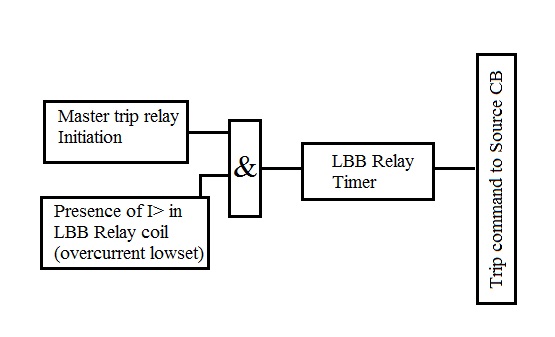RELAY SETTINGS Part 2
We just gone through the Different Relay characteristics,PSM, TMS and all.Its the time to get hand on these. This could be some what different while coming to practical scenario from the theory part, but hold on you could make it nailed!
Typical Overcurrent and E/F relay
here the rated CT secondary is 5A
then the relay pickup would be 125% of 5A=1.25x5=6.25A
the fault current in the relay coil =5000x5/400 =62.5A
so, the Plug setting multiplier is 62.5/6.25=10
from the Standard Inverse characteristics the tripping time is t=TMS x 0.14/(Ir0.02-1)
where Ir is the PSM
by taking TMS of 1 tripping time will be t=1 x 0.14/(100.02-1)
=3 seconds
here we confine the relay operating time as per our requirement by choosing suitable TMS
ie, with a TMS of 0.1 , 0.3 operating time will be 0.3 s and 0.9 s respectively.
let see the same problem with Very Inverse characterics
tripping time is t=TMS x 13.5/(Ir-1) ,then the t become with a TMS of 1t=1x 13.5/(10-1)=1.5 s
The TMSs of 0.2,0.5 , 0.7 would result in the actual operating of 0.3s,0.75s,and 1.05s respectively.
With Extremely Inverse chara, the time is TMS x 80/(Ir2-1)
so here it will be t=0.808s (for a TMS of 1)
For making the relays time graded we consider the following factors
1.Circuit breaker fault interrupting time( around 100ms)
2.Time overshoot of relay(upto 50ms)
3.Safety margin (we chose 100ms ) and
4. Errors
these are time delays which are unavoidable while designing, Although the recommended margin is 0.25s(0.1 for CB,0.05 for relay and 0.1 for safety margin)
Settings for Earth Fault protection is some what similar to that of Overcurrent.
For detecting E/F we could use CT connected to neutral or by paralleling the existing line CTs. The later method is completely unaffected by balanced or unbalanced load currents and so its more preferred over the former. As the Fuses and MCBs in the load end wont detect the earth fault fault the time grading for this shall be crucial.




Comments
Post a Comment